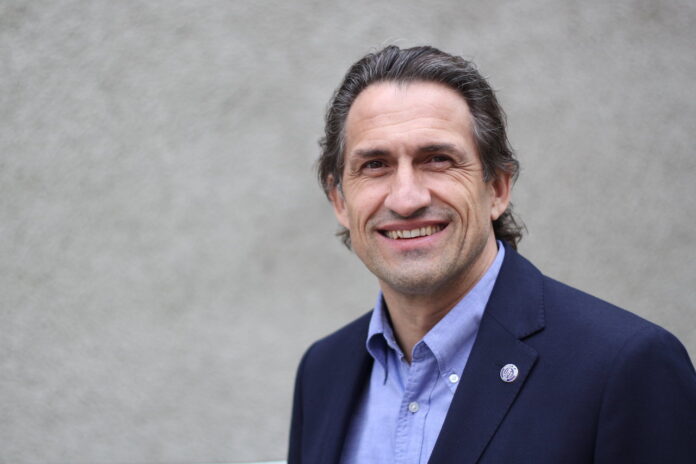In an effort to reflect on the life, policies and practices of the European Union, JESC presents a set of interviews with the Social Delegates from provinces all over Europe and the Near East. We invite you to read the interview with Markus Inama SJ, former Social Delegate for Austria and Germany, Superior of the Jesuit Community in Vienna, Member of the Board of “CONCORDIA Social Projects” and author of the book “Giving Hope a Home, the forgotten children of Sofia“.
Fr Inama, could you tell us a bit about your background?
People wonder about my family name. It is not from Japan or Africa but from Northern Italy. My great-grandfather who lost his parents very early left his home as a teenager and went to Western Austria looking for a job. My father was shaped by the experiences of his ancestors. It was important for him and also for my mother to help people who have a foreign background and that’s how we became involved in our parish-community and the social field. I am from the most western part of Austria and I grew up with one sister and four brothers in a little village close to Switzerland.
When did you join the Society of Jesus and what kind of work interest you the most?
I am from the most western part of Austria where I grew up with one sister and four brothers in a little village close to Switzerland. I joined the Society of Jesus when I was 24. After my ordination I worked in CLC youth centres in Vienna and Innsbruck for twelve years. Afterwards I moved to Bulgaria to build a social centre for children and youngsters from the street. Since 2009, I have been a member of the CONCORDIA Board. Although I lived primarily in Austria since 2012, I keep in contact with CONCORDIA-projects in different countries, I focus on the area of spirituality as well as fundraising. I also help to start new projects.
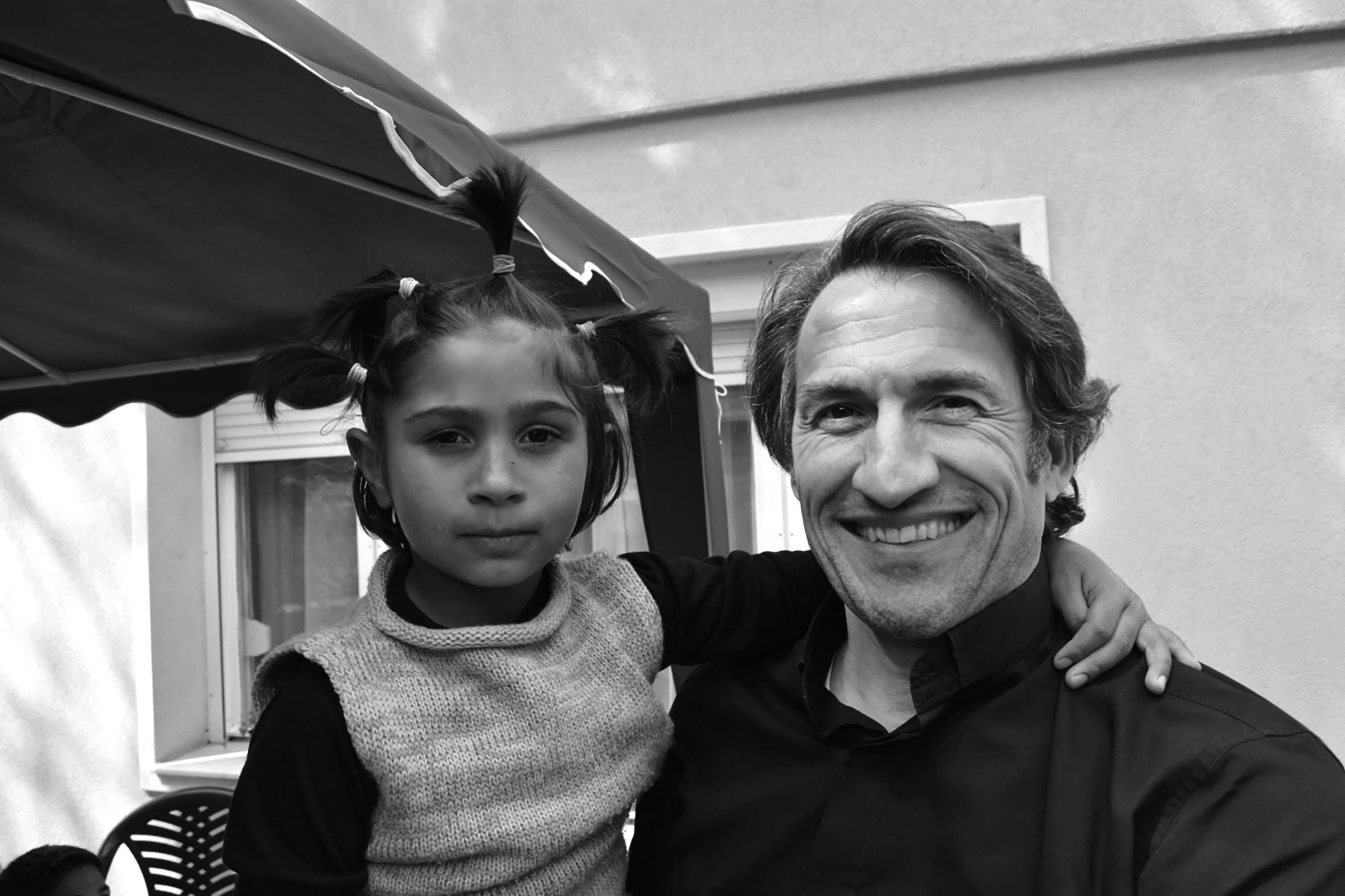
What do you take from your early volunteering experience in Bulgaria?
When I went to Bulgaria in 2008, I was told that it is too dangerous to enter the ghettos where Roma1 people live illegally.
After two years, Milan, a young boy of 11 years, who wanted to live in our social centre took me to his community. He led me to the hut where his parents and five siblings were living. This encounter showed me a reality of life I did not expect to find in Europe.
In the evening that day, I asked Milan and other children about their dreams. Their dreams did not differ from dreams of children in well situated families in Vienna. But their chances to realise their dreams is almost zero if nobody is willing to help them.
What reasons led you to become a Jesuit?
I think it was because I was lucky to grow up in a healthy family, in a lively neighbourhood and a parish which had a program for youngsters. But I had to find my way on my own.
After I finished high school and military service, I decided to travel to the US and Mexico. During this half-year-trip I learned what life looks like from the perspective of people who experienced hardships and did not have the support of their families. After I returned from this trip, I had a hard time adjusting to normal life in Austria.
I started volunteering in a social project for homeless men in Vienna. I planned to stay for two weeks and ended up staying for two years. During my stay in Vienna, I took part in the Jesuit European Volunteer Program. I got to know the vision of Fr. Arrupe about “a faith that does justice”. I learned what living in a religious order could also mean: Committing myself at the hotspots of today’s society, rooted in the Gospel.
What is the reason behind your decision to work with children living in poverty?
Hard to say. Probably because every child and every youngster experienced situations where he/she was left alone and was lost, without any perspective. To overcome these situations, it was important to know that there is somebody who cares and that I have a home where I can return to. Some children living in poverty are in danger of losing this fundamental confidence.
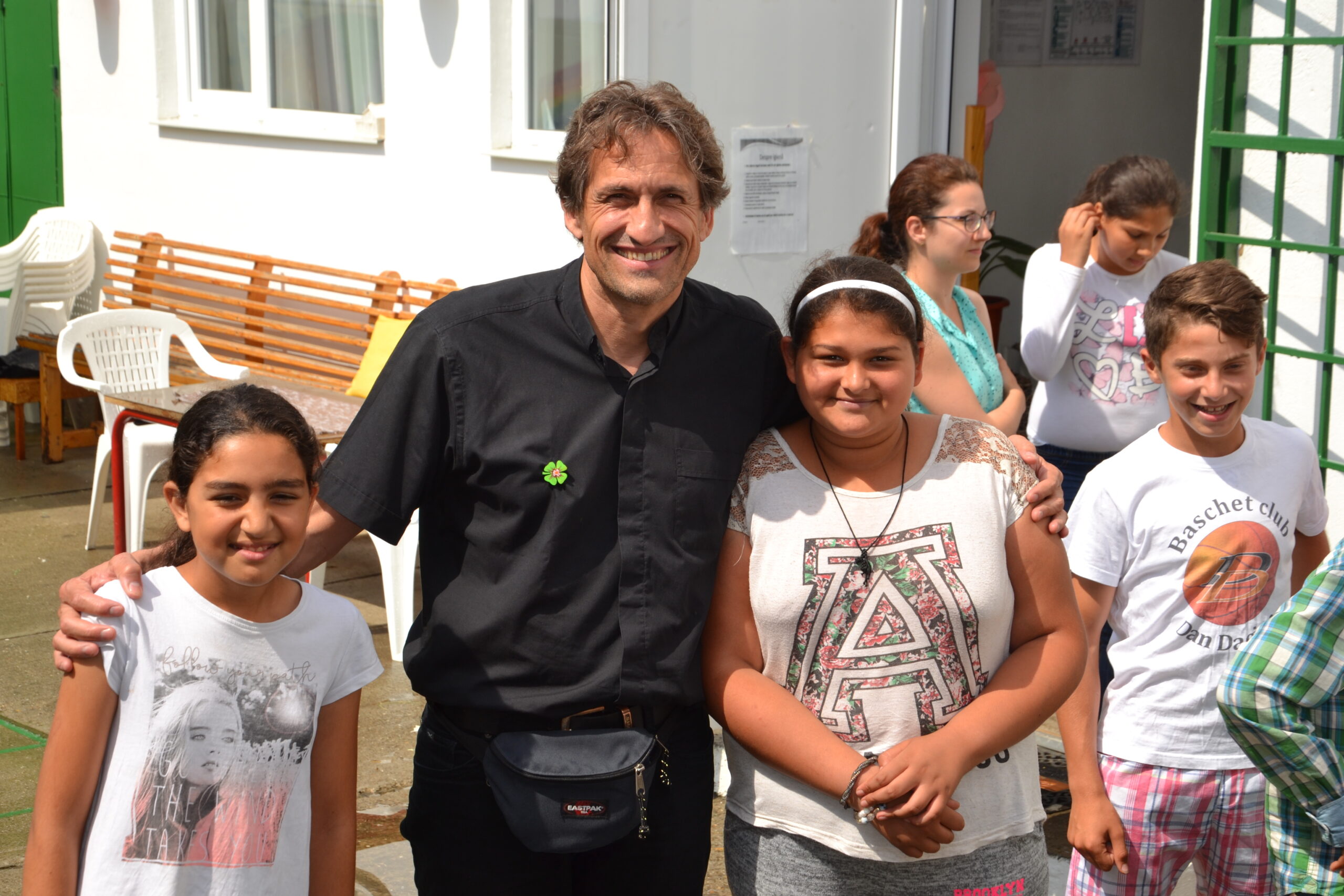
What added value do you get from working in CONCORDIA? What role does Jesuit spirituality play in your job?
In my opinion the situation in Eastern Europe is one of the main issues we have to deal with today. CONCORDIA was founded immediately after the collapse of the political system in Eastern Europe in 1991. Since then, we are facing an ongoing transition process not limited to the political. Work migration to central Europe is a big issue for Eastern European countries. The social welfare systems in the new membership states of the EU cannot keep up with the social problems or rights of minorities. The building of civil society takes time and is very much connected with the migration issue because many Eastern European countries are not willing to take responsibility for refugees.
In these big challenges it is very important to be part of an NGO which is building bridges between Central and Eastern European Countries: for 30 years with Romania, for 17 years with the Rep. of Moldova, for 13 years with Bulgaria and as of this year with Kosovo. CONCORDIA is taking care of children and elderly people who are left behind, and we work for vulnerable groups like the Roma community.
There are about 300 Volunteers engaged in the CONCORDIA-countries every year. The lived solidarity of these young people gives us all hope. CONCORDIA Social Projects relate to the Jesuits through the CONCORDIA guidelines which we took from Fr. Ignatius: “We go where the need is the greatest. And where others do not go.”
Members of the Academy of Social Management from Kardinal König Haus Vienna are supervising CONCORDIA-managers and offer courses for social workers. In the last five years the CONCORDIA Academy was established for people who are engaged in the social field in Eastern Europe. Jesuits help CONCORDIA co-workers to connect their work to biblical stories or values of the gospel in different spirituality workshops.
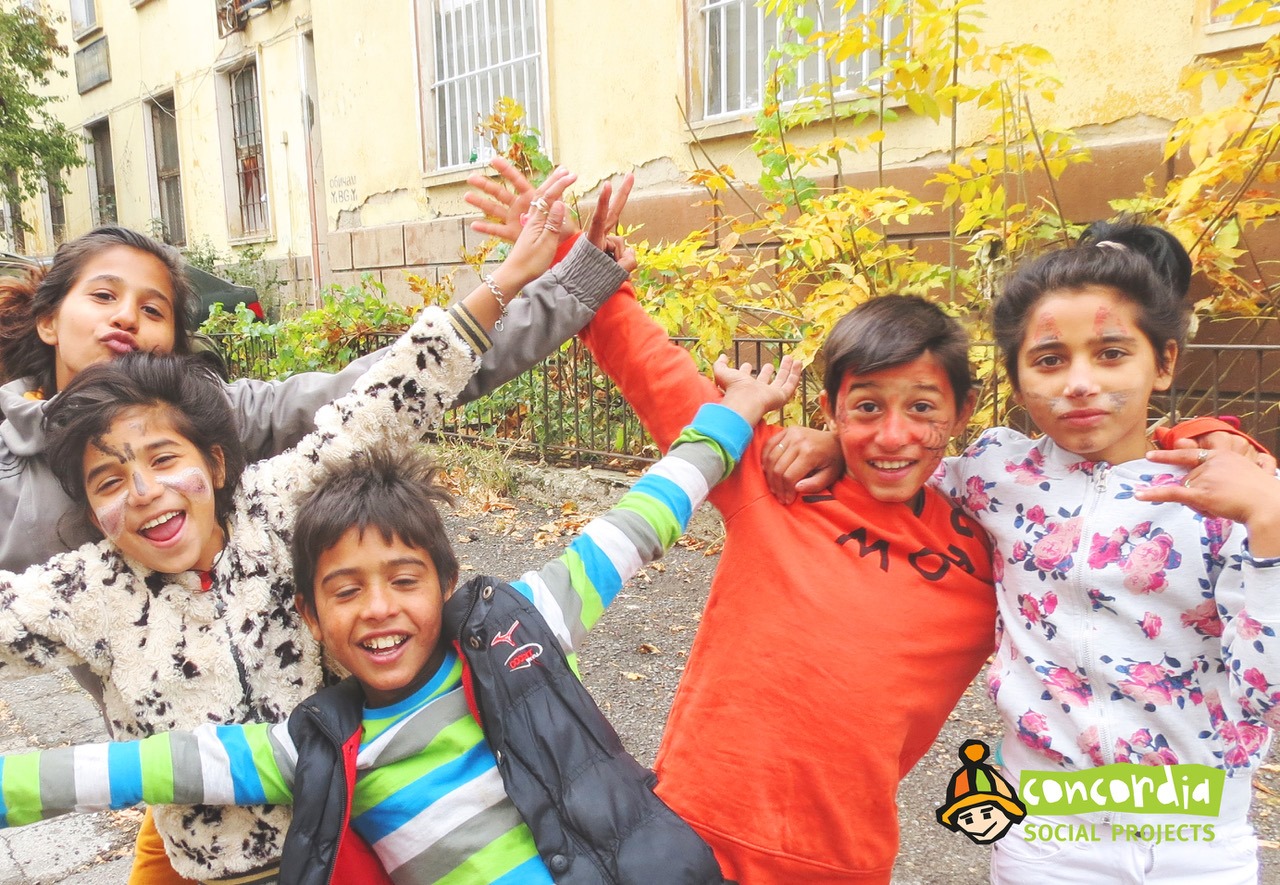
Can you share a significant experience you have lived with the poorest during your work with CONCORDIA Social projects?
Asia was no longer a child when she came to our centre in Sofia, but sometimes she behaved like a child. Once she begged me for money because she wanted to buy chocolate. I said no. Then she asked me, “Do you love me?” I was surprised. I took her in my arms and told her that I liked her. Asia has no parents. She grew up in state-run homes. Then she struggled on the streets until she finally came to us. For people like her, it is important to get the affection she had missed. She has more and more given up the difficult habits, which she had learned to survive on the streets.
In your book “Giving Hope a Home, the forgotten children of Sofia” you talk about the social centre “Sveti Konstantin” for homeless children. How do you denounce a lack of commitment of society to situations of vulnerability like the ones suffered by the youngest in Sofia?
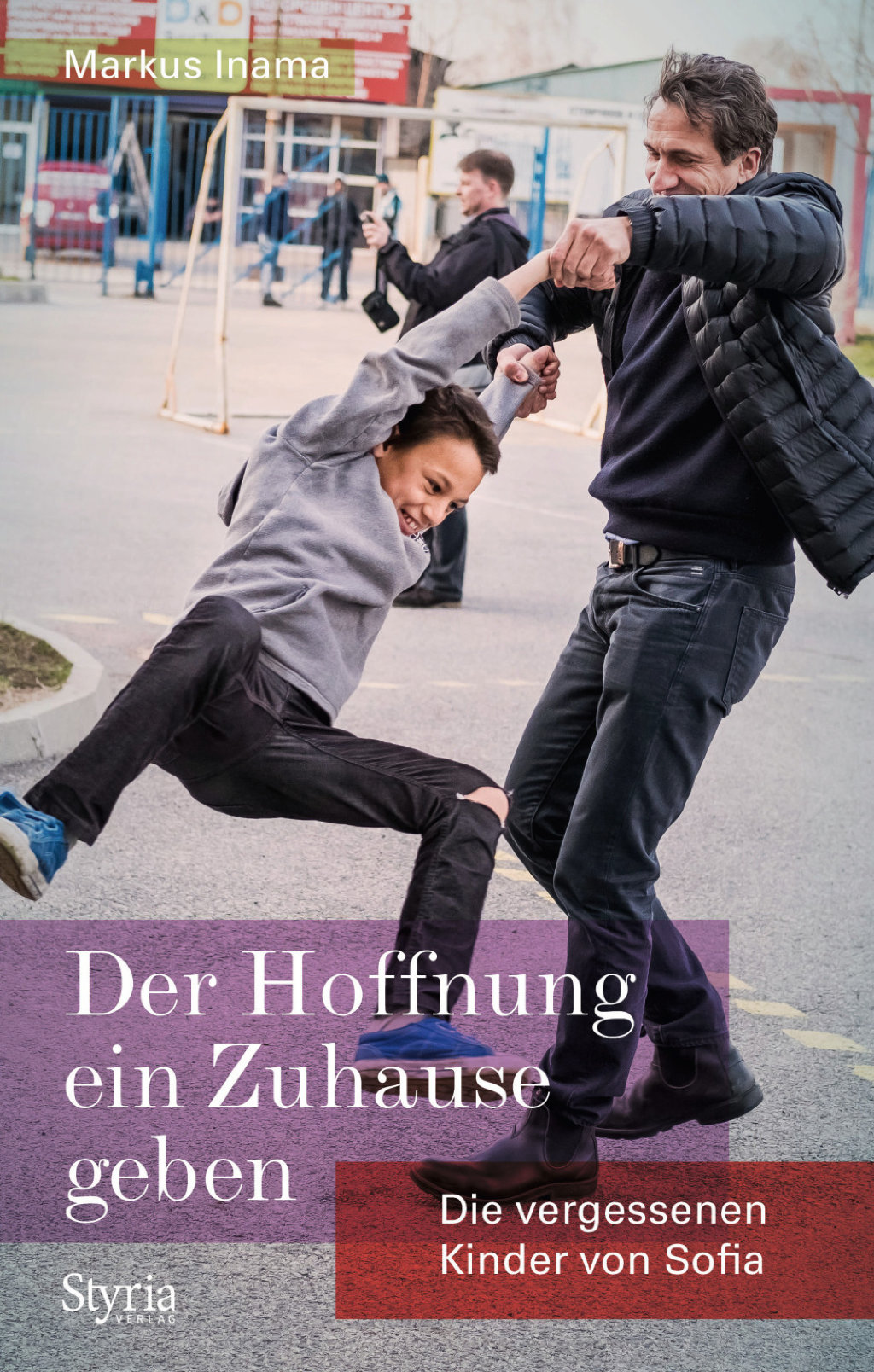
The first aim of the book “Giving Hope a Home” was to show that we can make a difference if we try to deal with the needs of families in poor neighbourhoods. Some people understood our engagement as an affront. It was as if we touched on a sore point of society with our project. For us it was painful, especially in the first two years, because we accompanied teenagers who died due to diseases caused by their life on the streets. We, and also other people, became aware of how urgent it is to start with our work in the early childhood.
How can organizations like CONCORDIA raise awareness and change the current perception of society about children in poverty?
One of our co-workers started a soccer-club. I was not convinced at first whether this is a good and useful idea. But it turned out that this project not only had a positive impact on the youngsters – boys and girls – but we also were able to reach the local people with this project and to reduce prejudices. Some of our youngsters took part in an European art project. The CONCORDIA youngsters were the only ones with a Roma background. Without an NGO whose goal is building bridges to these groups this would not have been possible.
What do you think is the biggest challenge for CONCORDIA in light of the global crisis caused by the Covid pandemic?
In countries like Moldova or Bulgaria the political situation is not very stable, which would be a requirement to handle this crisis. The people react with a certain fatalism.
Our Co-workers have to cope with this pandemic on the basis of a health system that is not comparable to the one in Central Europe. In the Rep. of Moldova, there is no space available in intensive care anymore. They began vaccination only recently. We are distributing food packages and hygienic material to poor families. In Bulgaria and Romania, we are one of the few NGOs entering the Roma-communities to support them.
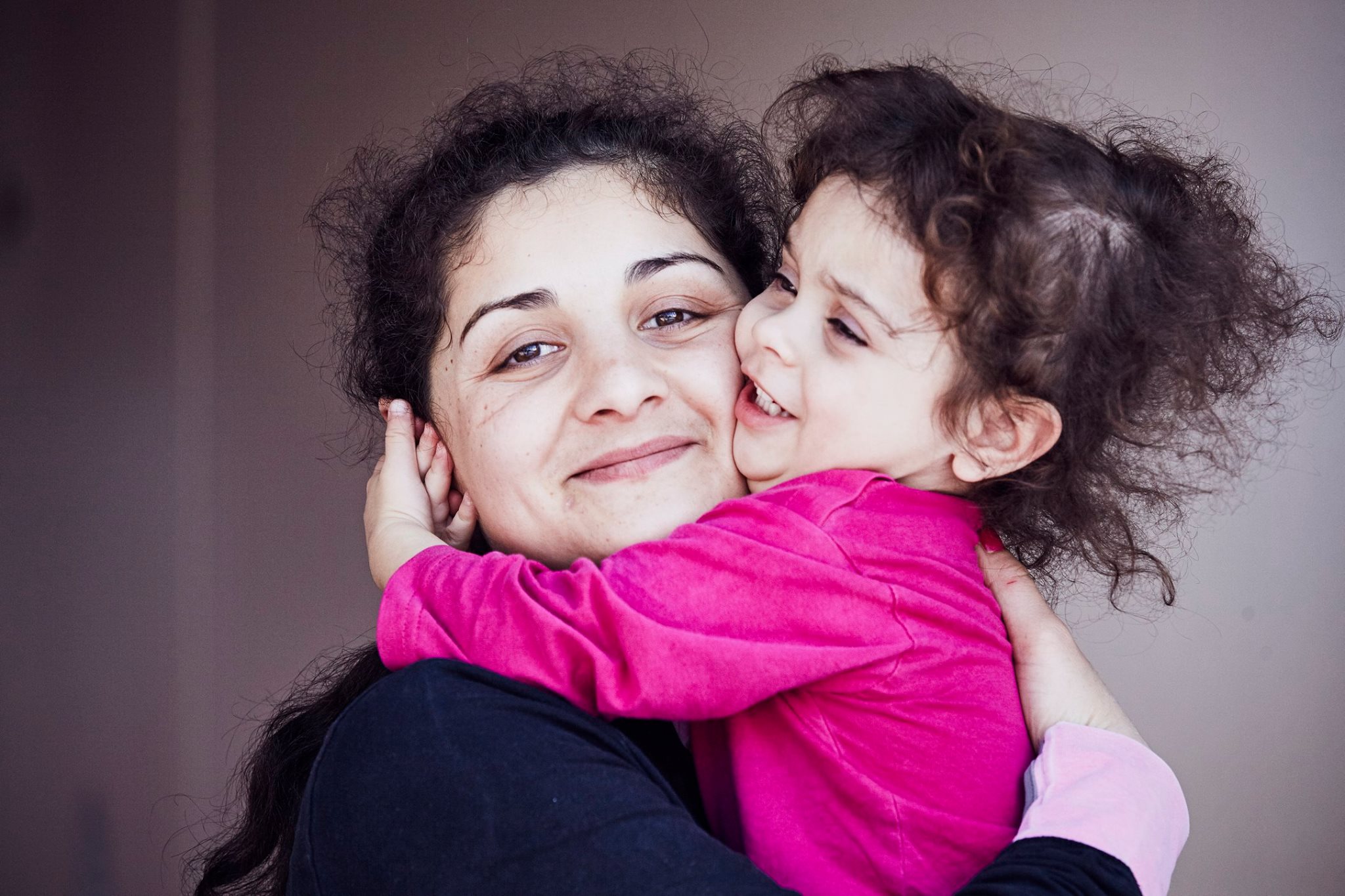
Endnotes:
1 The “Roma” are a ethnic minority that live in Bulgaria. The term “Roma” encompasses numerous factions which are believed to have descended from a single group that left northern India around 1,000 years ago and settled in Europe around the fourteenth century
Interview by
Soraia Ribeiro, Communications Officer
María Álvarez Hierro, Communications Intern

